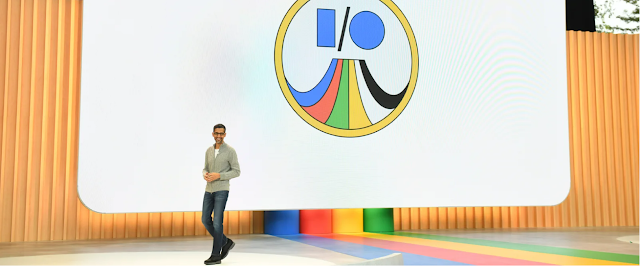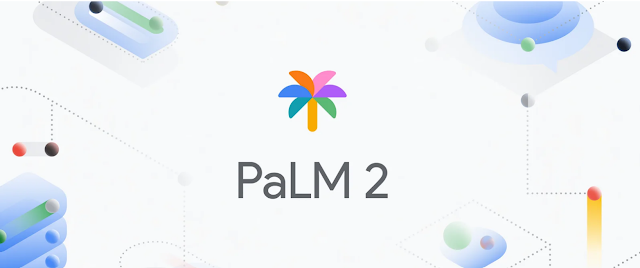Google Teams Up with DeepMind to Develop Gemini - Its Latest Next-generation Large Language Model
Google has been a leader in developing advanced artificial intelligence and machine learning models for a long time. However, the company has faced stiff competition from other players in the field of generative AI, such as OpenAI and Microsoft, who have created impressive large language models (LLMs) like ChatGPT and Bing Chat. Google's own LLM, Google Bard, has not been able to match the performance and popularity of these models.
To accelerate its growth and innovation in generative AI, Google has teamed up with its subsidiary DeepMind, an artificial intelligence laboratory that has produced groundbreaking work in foundation models such as AlphaGo and AlphaFold. Together, they are developing a new LLM called Gemini, which they revealed at Google I/O 2023.
❗Introducing Gemini
— Smoke-away (@SmokeAwayyy) May 10, 2023
Google DeepMind's next-generation multimodal foundation model. pic.twitter.com/IGQHjAoNUy
Gemini is a state-of-the-art LLM with up to a trillion parameters, trained on tens of thousands of Google's TPU chips. It could take months to train Gemini. Gemini is designed to be a multimodal foundation model, meaning that it can handle different types of data such as text, images, audio and video. Gemini can also excel in various technical skills such as coding, writing and mathematics. Gemini has up to a trillion parameters, which is an order of magnitude larger than ChatGPT-4, the latest LLM from OpenAI.
Gemini is also powered by Google's Tensor Processing Units (TPUs), which are specialized chips designed for high-performance machine learning. Google has deployed tens of thousands of TPUs to train Gemini, making it one of the most ambitious and expensive AI projects ever undertaken. It could take months to train Gemini to its full potential.
Gemini is built on top of PaLM 2, Google's next generation language model that was also introduced at Google I/O 2023. PaLM 2 is a versatile and efficient LLM that supports more than 100 languages and has improved multilingual, reasoning and coding capabilities. PaLM 2 comes in four different sizes: Gecko, Otter, Bison and Unicorn. Gemini is based on the largest size, Unicorn, which has 500 billion parameters.
Gemini is still in its early phases of development and testing, but Google and DeepMind have high hopes for its potential applications and impact. They envision Gemini to be used for a wide range of purposes such as chatbots, content generation, translation, summarization, image captioning, speech recognition, video analysis and more. They also hope that Gemini will help advance the field of AI research and contribute to solving some of the world's biggest challenges.
Gemini has already shown promising results in various tasks and domains. Gemini can excel in natural language understanding, generation and translation across more than 100 languages. Gemini can also perform logic, common sense reasoning and mathematics at a high level. Gemini can even generate specialized code in different programming languages such as Python, JavaScript, Prolog, Fortran and Verilog.
Gemini is not only a powerful LLM, but also a versatile one. Gemini can be fine-tuned and adapted for different purposes and applications. Google plans to make Gemini available in four sizes: Gecko, Otter, Bison and Unicorn. Gecko is the smallest and lightest version of Gemini, which can run on mobile devices and work offline. Otter is a medium-sized version of Gemini, which can handle most general-purpose tasks. Bison is a large-sized version of Gemini, which can tackle more complex and specialized tasks. Unicorn is the largest and most powerful version of Gemini, which can perform any task that Gemini is capable of.
Gemini is Google's ambitious attempt to stay ahead of the curve. Google hopes that Gemini will become the ultimate foundation model for generative AI, enabling new possibilities and benefits for people in various fields and industries. Google also hopes that Gemini will help it regain its edge and leadership in the AI race against its rivals. However, Google also acknowledges the challenges and risks that come with developing such a powerful AI model. Google promises to follow responsible and ethical principles in building and deploying Gemini, and to collaborate with other stakeholders in the AI community to ensure the safety and fairness of Gemini.
Google I/O 2023 was an event packed with exciting announcements. Among the highlights were advancements in AI that will power new features across Google products. For example, Android users can now enjoy custom wallpapers, while Google Photos is getting more powerful editing tools. Search is also getting a boost with AI-powered snapshots that allow users to dive deeper into topics. Google also unveiled a new hardware lineup, including the highly anticipated Google Pixel Tablet, Pixel Fold, and Pixel 7a. Overall, the event showcased Google's commitment to innovation and creating products that help make people's lives easier and more enjoyable.













No comments: